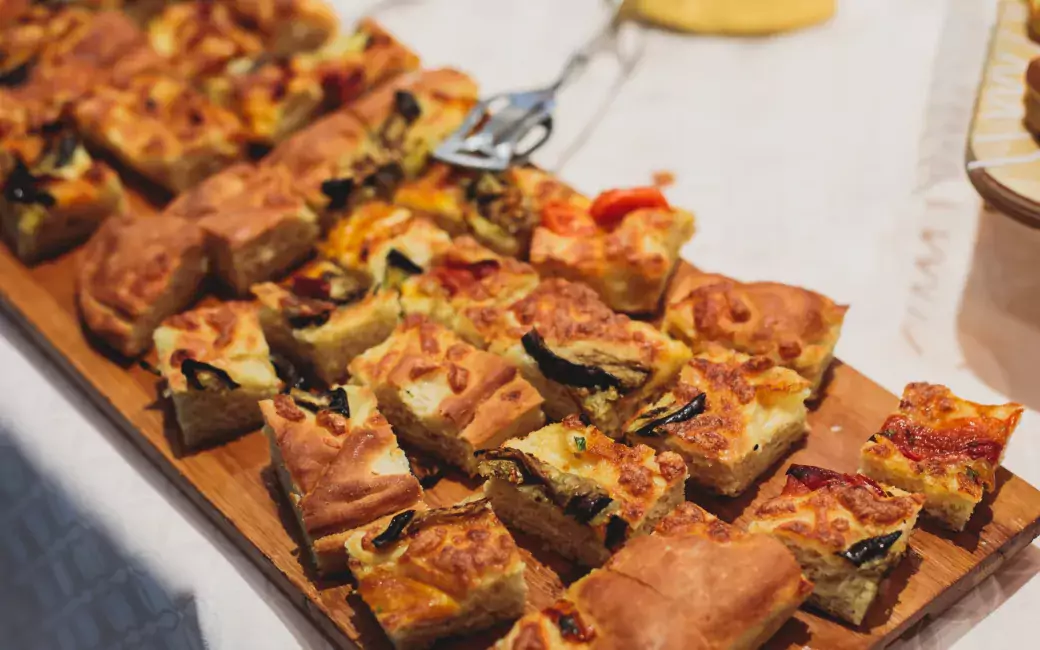The recommendations are based on research and comments from the University community and aim to promote sustainability and responsibility in all University catering.

The University of Helsinki has drawn up new catering recommendations for events at the University. The recommendations promote sustainability by encouraging the community to serve vegetarian and vegan food or sustainably caught local fish and, where possible, to choose reusable tableware and cutlery. The list of offerings to avoid includes bottled water and products that research has shown to be considerably harmful for climate and the environment. Such products include meat, dairy and rice.
Where possible, the recommendations should be followed also when the University is not the main organiser of an event organised in collaboration with others.
Based on research
One of the strategic objectives of the University of Helsinki is to be a leader in sustainability and responsibility. This requires changing our everyday habits. The catering recommendations help support the measures outlined in the Carbon neutral University of Helsinki by 2030 roadmap. These measures aim to ensure that the University's catering services prioritise plant-based food by 2030.
As the University strives to base its decisions on research, the recommendations are aligned with the Nordic nutrition recommendations, advocating a more plant-based diet and the reduction of meat consumption.
"There is a broad scientific consensus that the consumption of animal products in the West is excessive for not only nutritional health, but also the environment and natural resources. We must reduce this consumption by up to 50% and replace animal products with plant-based alternatives," says Professor of Agroecology Juha Helenius, who leads the FOOD programme.
The catering recommendations were prepared collaboratively: with comments received from, among others, the University's vice-deans for sustainability and responsibility, the extended management group, the sustainability and responsibility committee, and cafeteria and restaurant operators, as well as from the Student Union.
The University is committed to the promotion of sustainability and responsibility, says Vice-Rector Anne Portaankorva, who is responsible for the University's associated efforts. However, defining sustainable and responsible catering is not always straightforward.
Juha Helenius highlights that the appropriate role of animals in food production is currently being debated in the academic community, including University of Helsinki researchers.
"We are a community of many voices willing to engage in discussion, and we intend to uphold this value," says Portaankorva.
Focus on inclusivity
The catering recommendations aim to not only reduce the environmental impact of University events, but also promote inclusivity and both social and financial responsibility. This means taking into account individual participant needs, such as various diets.
Food has the power to bring people together, not divide them. For example, for some time now, only vegan, nut-free food has been served at events for the University leadership and at University-level receptions organised by the University's events and conference team. In addition, a gluten-free option is always available.
This policy acknowledges the diversity of the University community, as vegan food is suitable for most participants, including those with religious, ethical or cultural reasons for not eating animal products. In addition, catering suitable to as many people as possible reduces food waste and, thus, our carbon footprint.
The catering recommendations were adopted on 17 January 2024 and will be updated, if necessary, on the basis of the latest research findings.
University catering recommendations
- Where possible, serve vegetarian and vegan food or sustainably caught local fish.
- Where possible, serve healthy seasonal, local and organic food as well as Fairtrade products. As a Fairtrade university, we are committed to using Fairtrade coffee and tea in catering.
- Avoid products if research has shown they are harmful for the climate and the environment. Such products include meat, dairy and rice.
- Accommodate different diets.
- Avoid serving bottled water.
- Avoid food waste. To reduce it, require participants to register for catered events.
- Where possible, choose reusable tableware and cutlery.






